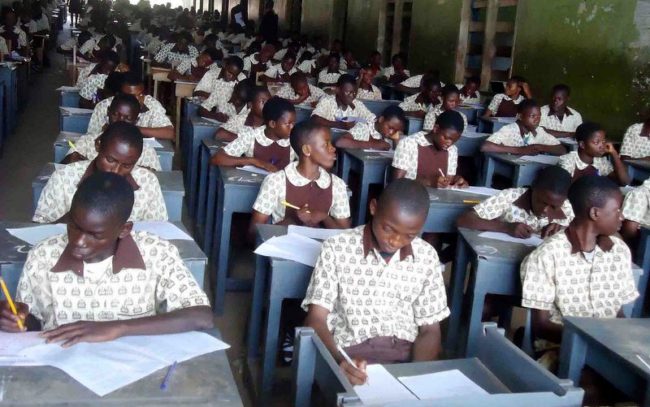By: Racheal Ishaya.
There are currently increasing complaints about poor standard of education at a period when globalisation demands much from the educational system in terms of preparation of skillful labour force.
The major challenge of public education still remains the commitment by the government to focus on funding public education to enhance qualitative learning.
Education funding comes from different sources. The major one for all levels of government is public revenue from taxation and proceeds from crude oil.
These funds are reported to be distributed among primary, secondary and tertiary educational levels in the proportion of 30 per cent, 30 per cent and 40 per cent respectively.
To create more awareness on the issue of education financing, with the hope of getting policy change, Action Aid and its partners in December, 2018, held a two day meeting tagged “Breaking Barriers to Education’’ in Sokoto and Lagos.
In both cities, the meetings had in attendance representatives of the state Ministries of Finance, Budget and National Planning, Education, Federal Inland Revenue Service, Civil Society Organisations and the Association of Persons with Disabilities.
The Education Programme Cordinator, Action Aid Nigeria, Mr Laban Onisimus said in spite of the general consensus on the importance of education, many governments were spending less on education.
“People pay taxes for basic services and in most countries around the world one of the first expectations of tax payers is that their government will invest in providing basic education.
“Indeed it is part of the fundamental unwritten contract between citizens and the state that tax money will be spent on providing public schools accessible to all children,’’ he said.
Onisimus said that most of the working population in the country were reluctant to pay their taxes because of the poor quality of public schools and other services in the country.
Onisimus revealed that the Action Aid through the Breaking Barriers Project was working with stakeholders in Lagos and Sokoto to advocate for increase in budgetary allocation to the education sector.
Similarly, Mr Chinedu Bassey from CISLAC said that poor funding of the education sector has led to under performance in the Nigerian economy.
He noted that sufficient budgetary allocation to the education sector was a problem in the country, especially during election years.
#10YrsChallenge Federal Government’s Budgetary Allocation to Education from 2009-2019
| Year | Budget | Education Allocation |
| 2009 | N3.049 trillion | N221.19 billion |
| 2010 | N4.608 trillion | N249.09 billion |
| 2011 | N4.972 trillion | N306.3 billion |
| 2012 | N4.877 trillion | N400.15 billion |
| 2013 | N4.987 trillion | N426.53 billion |
| 2014 | N4.962 trillion | N493 billion |
| 2015 | N4.493 trillion | N392.2 billion |
| 2016 | N6.06 trillion | N369.6 billion |
| 2017 | N7.444 trillion | N550 billion |
| 2018 | N8.612 trillion | N605.8 billion |
| 2019 (proposed) | N8.83 trillion | N462.24 billion |
Bassey said that the government would be in a position to increase funding to education and provide better public services when it improves its revenue generation.
He said that the guaranteed way to improve revenue was for government to block illicit financial flows and other avenues for revenue leakages, eliminate multiple taxation and improve accountability for tax revenue.
Observers believe that educational expenditure has a significant effect on the Nigerian economic growth.
They say that the gains include increase in productivity, worker’s income, poverty reduction, acts as a vehicle for promoting equity, fairness and social justice.
They agreed that enhanced investment on education in the country would help supply the essential human capital which is a necessary condition for sustained economic growth.
Source of the article: https://www.nan.ng/news/impact-of-education-financing-on-nigerias-economic-growth/






 Users Today : 62
Users Today : 62 Total Users : 35403255
Total Users : 35403255 Views Today : 85
Views Today : 85 Total views : 3332524
Total views : 3332524